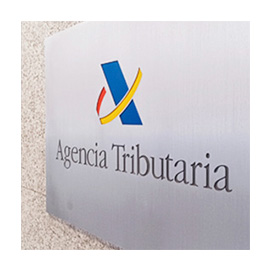1. INTRODUCTION

The State Tax Administration Agency (hereinafter, the Tax Agency) is a public law entity attached to the Ministry of Finance and Public Administration through the State Secretariat of Finance. It was created by the State Budget Law for 1991 and it was effectively constituted on the 1st of January 1992. The Tax Agency has its own legal regime that grants it a certain autonomy on the subject of personnel and budgetary management.
The Tax Agency is responsible for the effective application of the national tax and customs systems, and for those resources belonging to other State Public Administrations and the European Union which are entrusted to it for management by law or agreement; however, it has no authority for the preparation and interpretation of tax regulations.
In order to measure the results of the actions carried out by the Tax Agency aimed at promoting compliance, whether derived from assistance and prevention, or control actions, one of the indicators of the activity carried out is the tax collection of the State. In net terms, that is, once the appropriate refunds have been made, revenue in 2022 reached 255,463 million euros, 14.35% more than the previous year. On the other hand, the revenue obtained from the actions to prevent and control tax and customs fraud has amounted to 16,675 million, which represents a decrease of 1.31% compared to the previous year. However, it should be noted that both in 2021 and 2022 there have been reductions in extraordinary fractional payments and, therefore, they are difficult to repeat in the future. Excluding these extraordinary items in both years, fraud prevention and control results grew by 2.72% in 2022 to reach €15,362.12 million. These data are reflected in Table No. 1. Tax collection (Annex).
A part of the tax collected is assigned to the Autonomous Communities under a common regime. Law 22/2009, of 18 December, which governs the finance system for the Autonomous Communities under joint government and Cities with Autonomy Statutes, and which amended a series of tax regulations, gives to the Autonomous Communities under joint government the total or partial income produced in their territory of a series of tributes managed by the Tax Agency. In particular, as of December 31, 2021, the following percentages of collection were transferred:
-
Income Tax: 50%(1)
-
Value Added Tax: 50%
-
Special Taxes:
-
Beer Tax: 58%
-
Wine and Fermented Drinks Tax: 58%
-
Tax on Intermediate Products: 58%
-
Tax on alcohol and alcoholic beverages: 58%
-
Tax on Hydrocarbons: 58% (general state rate); 100% (special state rate)
-
Tax on Tobacco Products: 58%
-
Special Tax on Certain Means of Transport: 100%
-
Excise Tax on Electricity: 100%
-
We should point out that the Special Tax on Certain Means of Transport assigns 100% to be distributed individually to the Autonomous Communities by the Tax Agency, according to the assessments and self-assessments carried out. For this reason, the State tax collection figures do not include income from this concept.
As well as the assigned taxes above, the Tax Agency also distributes tax collection to Autonomous Communities for the following concepts:
-
100% of the revenues from the Gaming Activities Tax, corresponding to certain types of games played electronically, using computers or online, in accordance with article 48.11 and transitory provision six of the Gaming Regulation Act no. 13/2011 of 27 May.
-
100% of revenues from the Tax on Deposits in Credit Institutions, pursuant to article 19.14 of Act 16/2012 of 27 December, through which various tax measures aimed at consolidating the public finances and boosting economic activity were adopted.
Revenues from these two items are not included in the State tax collection figures.
On the other hand, they are shown in table no. 2. Main declarations submitted and in table no. 3. Census of taxpayers New window (Annex) a series of key data that complement an initial vision of the Tax Agency.
(1) In the Personal Income Tax, they are given the net regional tax and other concepts in the conditions indicated in article 26.2 of Law 22/2009. Roughly speaking, it could be said that currently 50% is transferred, a percentage that could vary given the regulatory capacity of the Autonomous Communities.(Back)